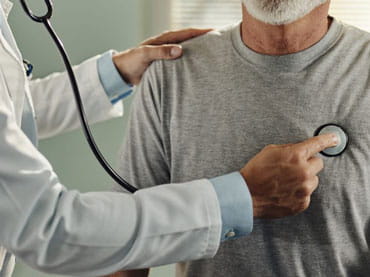People with heart and vascular conditions can find a variety of specialized services at the UPMC Heart and Vascular Institute.
Our goals are to protect and restore your heart's health by offering comprehensive cardiovascular programs and treatments for all types of heart and vascular conditions.
Our multidisciplinary team of experts uses the latest technology, conducts cutting-edge research, and participates in the latest clinical trials to give patients access to treatments that may not be available at other hospitals.
General Heart and Vascular Services
The UPMC Heart and Vascular Institute offers advance treatment and preventive services. Our doctors and surgeons are dedicated to improving your heart and vascular health.
Surgical Services at the UPMC Heart and Vascular Institute
Specialty Services at the Heart and Vascular Institute
When you need more advanced, condition-focused treatment, UPMC has specialized heart and vascular programs.
Our cardiologists, heart surgeons, vascular surgeons, and other experts provide collaborative care for:
Why Choose UPMC for Cardiovascular Care?
- Convenient – We have locations throughout Pennsylvania, New York, and Maryland — each with the latest echocardiography and nuclear imaging equipment for diagnosing heart disease.
- Collaborative – Our heart and vascular experts work closely with your primary care and internal medicine doctors to ensure that you receive the right treatment at the right time.
- Cutting-edge – Our cardiovascular research and clinical trials give you access to some of the most current and promising procedures and medications.

















